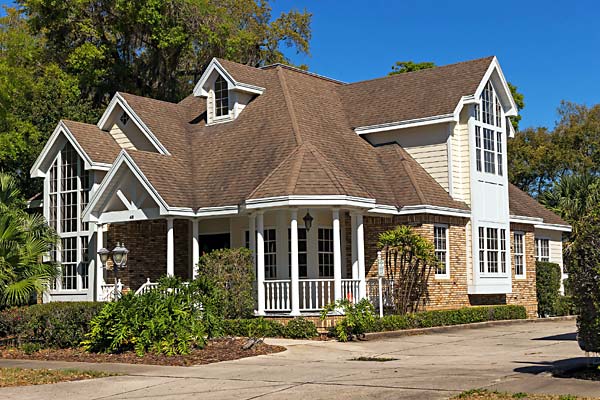When buying a new house, you should always have a professional inspect it. Unless you’re an expert and have purchased many properties, this is a hard and fast rule. But if you’re not then you hire a home inspector. Once you get your inspection report, this article covers the most important things so that you know what to look for during a home inspection. You may also like to read about what inspectors aren’t likely to tell you.

Home inspectors know a great deal. But most are not experts in any given area. Their job is to highlight obvious problems and encourage you to seek further advice from specialists for suspicious parts of the house.
What follows are the most important parts of the house when it comes to expensive repairs. Pay special attention to these when reviewing the inspection report.
Foundation
Every list of what to look for during a home inspection should start with the home’s foundation. Nothing is more important. Look for cracks, shifting, and even displaced ground. Experienced inspectors understand the importance of this. If there’s any question about the severity of a problem, you might need to bring in a structural engineer.
Roof
Other than the home’s foundation, the roof is the most important part of a house. Always thoroughly inspect the roof. Not all roof repairs are costly, but roof problems are the cause of many home insurance claims across America.
Sometimes the current owner will have a roof warranty that transfers to the new owner. This can be a big plus! Make sure to learn about any potential warranty as it could save you some money in the future.
HVAC
Another thing to look for during a home inspection is the condition of the home’s heating, ventilation, and air conditioning system. Obviously, it should be functional. But beyond that, it’s important to learn about the expected life of the HVAC system.
Older homes are more likely to have older systems in place. But an update will save you major dollars. For example, a good inspector will likely be able to estimate how long the air conditioning condenser will last by checking the serial number. The serial number tells you when it was manufactured and can give you an idea of when it was likely installed. Then you will have a better idea about when it might need to be replaced.
Water Damage
Water damage can be an expensive problem to fix, especially if you’re in an area that’s liable to flooding like in many parts of Florida. If there is water damage, you could ask the existing homeowners to fix the damage before the purchase. Orlando Water Damage Restoration & Flood Damage Restoration companies, as well as many nationwide, can deal with insurance companies for their clients, which the existing homeowner may not realize. If the sellers aren’t interested in repairing the damage, they may be open to reducing the sales price.
Many home inspectors have tools like infrared cameras to see what’s hidden inside walls and beneath floors. Water intrusion can very easily cause mold to grow. Mold is the cause of many health problems. If the problem is too extensive, it will be less expensive to demolish the house and rebuild it.
Electrical Systems
Home inspectors inspect the home’s electrical systems. Up until the 1930s, homes utilized knob and tube electrical wiring. This poses a grounding problem. For safety’s sake, this kind of wiring needs to be updated.
Experienced real estate agents know that the Federal Pacific electric panel has had many problems. The circuit breakers heat up when tripped and have led to fires in the past. We recommend updating to a newer, safer electrical panel in this case.
Radon
A new addition to what to look for during a home inspection is radon. It is an odorless, tasteless, invisible gas. It is released from the normal decay of certain elements in rocks and soil. We now recommended that home buyers test for radon during their home inspection. If there’s already a radon mitigation system in place this is not necessary. You may also purchase a less accurate radon testing kit for under $50 from a big box store.


